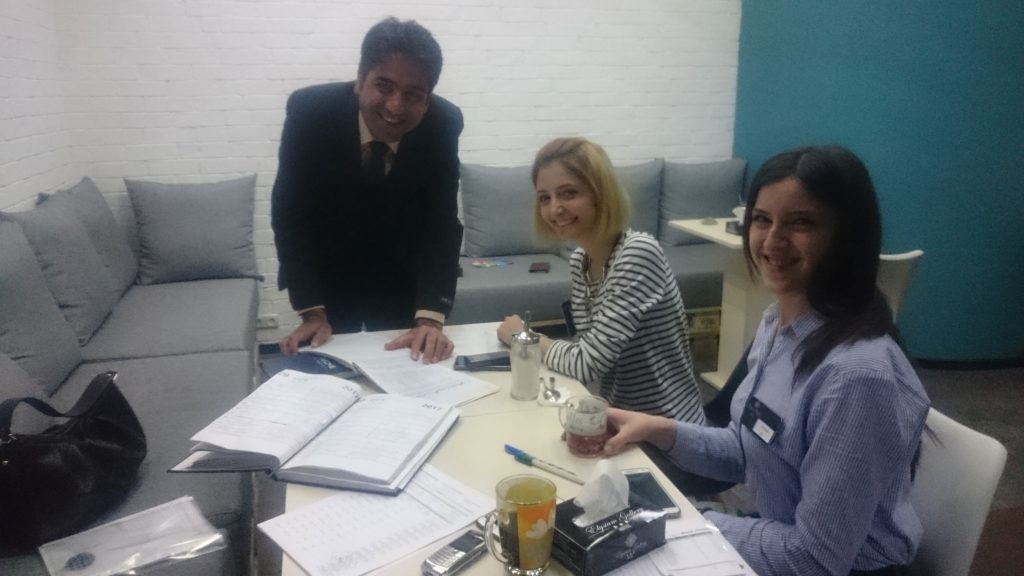
INEPHCO team is consisted of talented executives and powerful companies.
Mohammad Ehsani is the founder of the system for managing and controlling the development of this system

The company has adopted a progressive discipline policy to identify and address employee and employment related problems. This policy applies to any and all employee conduct that the company, in its sole discretion, determines must be addressed by discipline. Of course, no discipline policy can be expected to address each and every situation requiring corrective action that may arise in the workplace. Therefore, the Company takes a comprehensive approach regarding discipline and will attempt to consider all relevant factors before making decisions regarding discipline.
Most often, employee conduct that warrants discipline results from unacceptable behavior, poor performance or violation of the company’s policies, practices or procedures. However, discipline may be issued for conduct that falls outside of those identified areas. Equally important, the company need not resort to progressive discipline, but may take whatever action it deems necessary to address the issue at hand. This may mean that more or less severe discipline is imposed in a given situation. Likewise, some company polices like sexual harassment and attendance, contain specific discipline procedures.
Progressive discipline may be issued on employees even when the conduct that leads to more serious discipline is not the same that resulted in less sever discipline. That is, violations of different rules shall be considered the same as repeated violations of the same rule for purposes of progressive action.
Probationary employees are held to the highest standards for behavior and job performance. Progressive discipline is the exception rather than the rule for probationary employees.
The Company will normally adhere to the following progressive disciplinary process:
1. Verbal Caution: An employee will be given a verbal caution when he or she engages in problematic behavior. As the first step in the progressive discipline policy, a verbal caution is meant to alert the employee that a problem may exist or that one has been identified, which must be addressed. Verbal warnings will be documented and maintained by your [designate either appropriate individual (e.g., “your supervisor” or “your manager”]. A verbal caution remains in effect for [specify time (e.g., three months)].
2. Verbal Warning: A verbal warning is more serious than a verbal caution. An employee will be given a verbal warning when a problem is identified that justifies a verbal warning or the employee engages in unacceptable behavior during the period a verbal caution is in effect. Verbal warnings are documented and placed in the employee’s personnel file and will remain in effect for [specify time (e.g., three months)].
3. Written Warning: A written warning is more serious than a verbal warning. A written warning will be given when an employee engages in conduct that justifies a written warning or the employee engages in unacceptable behavior during the period that a verbal warning is in effect. Written warnings are maintained in an employee’s personnel file and remains in effect for [specify time (e.g., three months)].
4. Suspension: A suspension without pay is more serious than a written warning. An employee will be suspended when he or she engages in conduct that justifies a suspension or the employee engages in unacceptable behavior during the period that a written warning is in effect. An employee’s suspension will be documented and, regardless of the length of the suspension issued, will remain in effect for [specify time (e.g., three months)].
5 Decision Making Leave : Generally following a suspension, an employee will be reprimanded them sent home for the day on decision making leave. This is intended to help the employee decide whether they should continue employment with the company. If the employee returns, they will be expected to work harder than before to follow the Company guidelines and continue their employment without interruption. The other option with this leave is the employee may choose to resign because employment with the Company is not a match.
6. Termination: An employee will be terminated when he or she engages in conduct that justifies termination or does not correct the matter that resulted in less sever discipline.
Again, while the Company will generally take disciplinary action in a progressive manner, it reserves the right, in its sole discretion, to decide whether and what disciplinary action will be taken in a given situation.